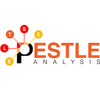The internet has a vast network of resources, and finding articles on a topic you wish to write about is relatively easy if you follow these steps.
Writing is a process that most people have to undertake at one point or another. Whether you are looking for material for your academic paper or have a writing project at work, you need to know how to find relevant articles to use as references or sources.
The internet has a vast network of resources, and finding articles on a topic you wish to write about is relatively easy if you follow these steps:
Define Your Title
Given the vast databases of articles available online and offline, it is essential to develop a subject to base your research on. A title simplifies your work by narrowing down ideas into a format that can bring specific results. Therefore, a title needs to be representative of the content and set the tone.
For instance, if you are looking for articles on epidemics, you need a defined topic for harmonization. There is tons of unstructured information concerning epidemics, and you will be overwhelmed. However, when you narrow it down to “Epidemics in the 21st Century and Their Clinical Management,” you get specific results, saving you a lot of time.
Here are a few pointers to a practical title:
- Captures the main ideas
- Features descriptive words or phrases
- Draws the attention of readers
- It goes straight to the point
Identify Your Keywords
Keywords are the main ideas in a particular type of content. Once you have your title, identify the keywords to help with your search. These are the words that you enter into search boxes as you search for articles online. Ensuring your article contains an adequate number of keywords will ensure that your work can be found easily.
When you encounter a problem finding specific keywords, consider using their synonyms instead. Going back to our title: “Epidemics in the 21st Century and Their Clinical Management,” we can extract about three keywords. These include epidemics, clinical management, and the 21st Century.
Why Are Keywords Important in Articles?
- Keywords summarize the topic of an article for readers;
- Keywords help classify papers and other written content;
- They help authors attract citations as their work is easy to find.
Effective keywords should have the following features:
- Should be an accurate representation of the article
- Should be specific
Establish Your Audience
Audiences come in all variations based on age, gender, education levels, social standing, economic status, and value systems. Different groups of audiences have different levels of perception and interests. For instance, non-native English speakers may not appreciate complicated terminologies in their text. On the contrary, an audience well versed in highly technical fields may look down on overly simplified content. Professional writers at various writing companies like domyessay.com understand the need to establish the audience in all papers. Your target audience will guide the type of content you will use for your work.
Categories of Audiences
Determining your audience is essential in your research to avoid miscommunication or misinterpretation of ideas. Here are some categories of audiences to help you pick the appropriate articles for use.
- The Expert Audience
Experts have a clear understanding of your content and tend to prefer content beyond the beginner’s scope.
- The LayPeople
This group of readers have no prior knowledge of your content and prefer all-rounded information, from the basics to the finer details.
- People in Management
Managers are keen and will quickly notice the slightest of mistakes. When dealing with this group, ensure your content is well-researched and factual.
- Technical Audience
Technical audiences require well defined, step by step information that is straight to the point and will avoid disorderly blocks of text.
- Mixed Audience
When dealing with different audiences, it would be wise to strike a balance so that none of your audience feels shortchanged.
Find an Appropriate Database
Given the millions of online articles and information at your disposal, finding appropriate content can be challenging. Depending on the type of content you would like to see, there are hundreds of helpful article directories to make your work easier. Databases are an excellent resource for finding the most relevant information for your work.
How to Choose a Database
When choosing a database for your articles, here are some points to note:
- The nature of content included, for example, magazine articles, scholarly content, or journal content.
- Provision for full texts in case you want to read the entire article. Sometimes this is provided as a link.
- The period range for the content, which needs to be reasonable. Old articles tend to have outdated concepts.
Finding the correct database ensures that you can access the most accurate articles in a shorter period.
Look at the References and Citations Section
Many articles have a bibliography indicating their sources at the end. Since writers base their research on these articles, you can find even more helpful information by finding them and reading them. References are a reliable source of information, especially when it comes to research articles and papers.
With the proper research and the right keywords, finding articles online becomes a simple process. Keywords are every researcher’s best friend for quick results and specified information.


